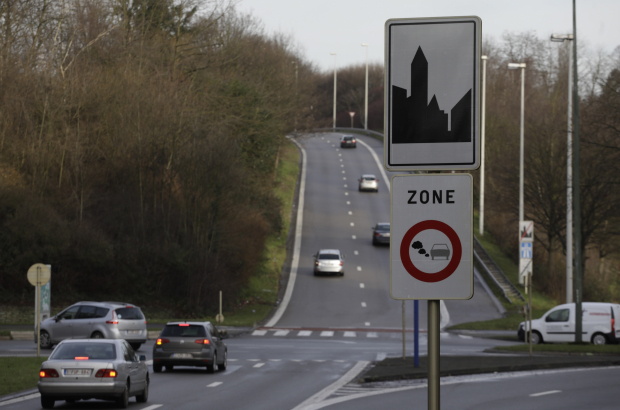- Daily & Weekly newsletters
- Buy & download The Bulletin
- Comment on our articles
19,000 vehicles in Brussels don’t conform to emission regulations
There are 19,000 vehicles registered in Brussels that do not conform to the low-emission zone (Lez) now that it has entered its second phase. This phase eliminates older cars that run on petrol and tightens restrictions on diesel-fuelled cars.
The low-emission zone was introduced on 1 January last year throughout the Brussels-Capital Region. Phase one banned all diesel-fuelled vehicles below the Euro 2 standard, which meant any cars manufactured before 1997.
Now we are in phase two, which requires diesel-fuelled vehicles to meet Euro 3 emission standards. This means that any diesel car manufactured before 2001 is banned. Phase two also bans all vehicles running on petrol that are below the Euro 2 standard, meaning any petrol-fuelled car manufactured before 1997.
According to authorities, some 19,000 vehicles registered in the capital do not meet the norms. While a grace period was allowed in 2018 when warnings were issued rather than fines, this year the police will hand out fines of €350 to any non-conforming vehicle being driven on the streets.
There is one way around the regulation: Owners with cars that are not allowed in the Lez can pay a fee of €35 a day for a maximum of eight days a year to drive their cars on those days.
For sale
Bruzz discovered dozens of Brussels residents selling their cars as they no longer meet the requirements of the Lez or will not next year. Because in 2020 the requirements get tougher for diesel-fuelled cars: Those not meeting Euro 4 standards or higher will not be allowed to drive in the zone. That means a manufacture date of before 2006.
Diesel-run vehicles will face tougher and tougher norms in the future, but for cars that run on petrol and meet the Euro 2 standard, nothing will change until at least 2025. Anyone unsure whether their car meets the Lez requirements can check on the region’s website.
The regulations also applies, by the way, to vans smaller than 3.5 tons and to buses. Visitors to the capital, whether driving cars registered in Belgium or elsewhere, must also meet the norms. Drivers of cars with foreign plates are supposed to register before entering the city.
Photo: Thierry Roge/BELGA


















